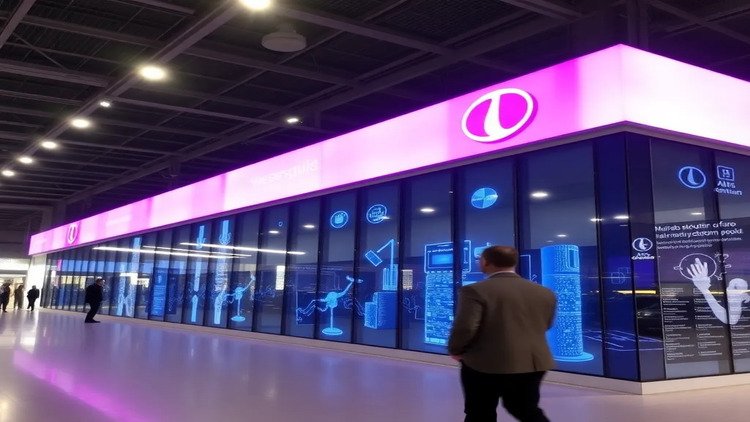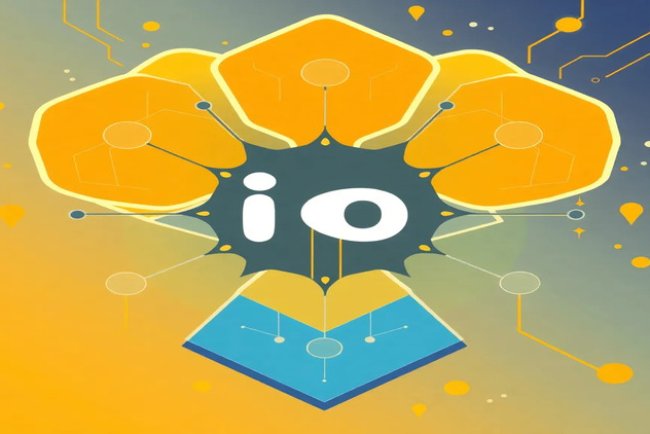Deutsche Telekom MMS Partners with Subsquid to Enhance Web3 Data Infrastructure
Deutsche Telekom MMS has partnered with Subsquid to improve the decentralized data infrastructure of Web3 by integrating dedicated worker nodes into Subsquid's data lake. This collaboration aims to enhance the resilience and scalability of the network, allowing for more efficient data retrieval and processing. By leveraging Deutsche Telekom MMS's enterprise-grade infrastructure, the partnership seeks to provide developers with seamless access to raw blockchain data, addressing common challenges in Web3 development. The initiative reflects a commitment to advancing blockchain technology and making it more accessible for users and developers alike.

Deutsche Telekom MMS, a prominent German IT service and consulting firm, has teamed up with Subsquid to bolster its decentralized data lake by implementing dedicated worker nodes. This partnership, announced on July 3, aims to integrate Deutsche Telekom MMS’s robust enterprise infrastructure into Subsquid’s network, significantly improving its resilience and scalability.
Improving Web3 Data Access
The newly established nodes are essential for processing queries and delivering data efficiently from the data lake to various consumers, including indexers. This integration is crucial for the functionality of Subsquid’s network.
Subsquid provides a modular, decentralized data platform designed for Web3 developers, facilitating access to vital blockchain data. The data lake serves as a repository for raw, unformatted data, which businesses can then customize as needed. Deutsche Telekom MMS’s worker nodes went live earlier this summer, marking a substantial contribution to this ecosystem.
Tackling Web3 Development Challenges
Developers in the Web3 space often encounter difficulties in retrieving data across different blockchain formats and access points. Traditional centralized APIs or direct RPC nodes can lead to high costs, slow retrieval times, and security vulnerabilities. However, the worker nodes in Subsquid’s data lake store data in its raw form, allowing for seamless and customizable access.
During the testnet phase, over 60,000 indexers were deployed, and the network currently features more than 700 worker nodes with 536 TB of stored data.
Impact of Decentralized Data Lake Technology
Dirk Röder, Head of Web3 Infrastructure and Solutions at Deutsche Telekom MMS, emphasized the transformative potential of Subsquid’s data lake architecture, stating:
“Subsquid’s network, with its innovative data lake architecture, is a game-changer for Web3. It unlocks the true potential of blockchain data, making it readily accessible and usable for developers and users alike. With our enterprise-grade infrastructure setup, we bolster the security and scalability of the network, providing the foundation for Subsquid’s powerful decentralized Data Lake technology.”
Marcel Fohrmann, co-founder of Subsquid, echoed this sentiment, highlighting that the collaboration not only strengthens Subsquid’s network but also enhances the overall blockchain technology landscape.
FAQ: Deutsche Telekom MMS and Subsquid Partnership for Web3 Data Infrastructure
1. What is the purpose of the partnership between Deutsche Telekom MMS and Subsquid?
The partnership aims to enhance Subsquid's decentralized data lake by integrating Deutsche Telekom MMS’s enterprise infrastructure, which will improve the resilience and scalability of the network.
2. What are worker nodes, and why are they important?
Worker nodes are dedicated servers that process queries and deliver data from the data lake to various consumers, including indexers. They are crucial for ensuring efficient data retrieval and functionality within Subsquid’s network.
3. What is Subsquid?
Subsquid is a modular, decentralized data platform designed for Web3 developers, providing access to essential blockchain data through a customizable data lake that stores raw, unformatted data.
4. How does the decentralized data lake benefit developers?
The decentralized data lake allows developers to access blockchain data in its raw form, enabling seamless and customizable data retrieval without the high costs, slow speeds, and security risks associated with traditional centralized APIs or RPC nodes.
5. What has been the scale of Subsquid's network during the testnet phase?
During the testnet phase, Subsquid deployed over 60,000 indexers and currently operates more than 700 worker nodes, with a total of 536 TB of stored data.
6. What are the expected outcomes of this collaboration?
The collaboration is expected to unlock the full potential of blockchain data, making it more accessible and usable for developers and users, while also enhancing the security and scalability of the network.
7. Who is Dirk Röder, and what did he say about the partnership?
Dirk Röder is the Head of Web3 Infrastructure and Solutions at Deutsche Telekom MMS. He stated that Subsquid’s data lake architecture is a game-changer for Web3, emphasizing its potential to make blockchain data readily accessible and usable.
8. Who is Marcel Fohrmann, and what is his perspective on the collaboration?
Marcel Fohrmann is a co-founder of Subsquid. He highlighted that the partnership not only strengthens Subsquid’s network but also contributes positively to the overall blockchain technology landscape.
What's Your Reaction?
















